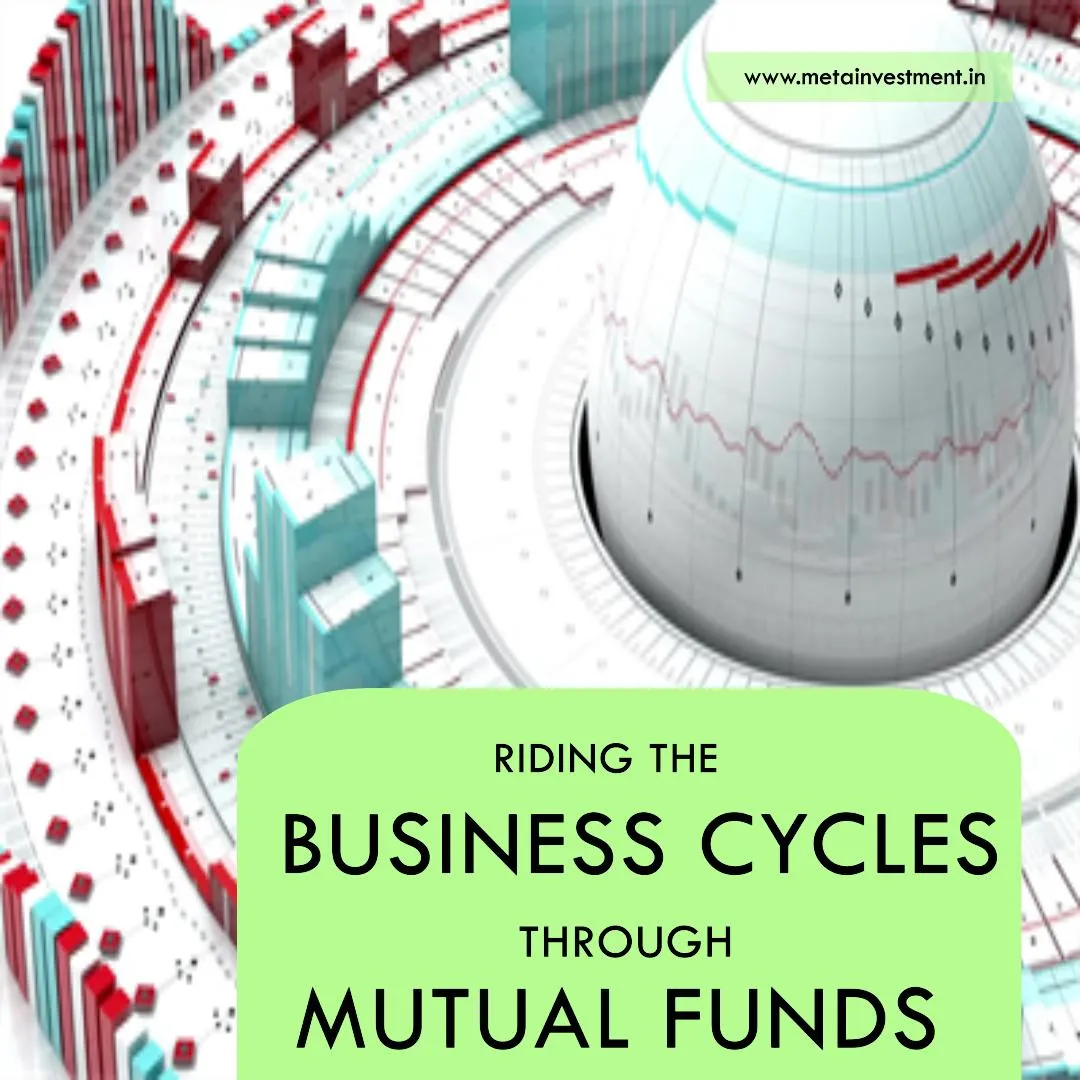The Indian mutual fund industry boasts a diverse array of investment options. Recently, a new category has emerged – Business Cycle Funds. These funds aim to capitalize on the ebb and flow of the economic cycle, potentially offering investors an edge in navigating the market. But are they a magic bullet, or a risky proposition? Let’s delve deeper.

Understanding the Business Cycle
Every economy experiences cyclical phases of expansion, peak, contraction, and trough. These phases impact different sectors and companies in unique ways.
-
Expansion: During this phase, the economy grows. Businesses produce more goods and services, people have jobs, and overall wealth increases.
-
Peak: This is the point where economic growth reaches its highest level before starting to decline. Everything is booming, but it’s often a sign that the economy is about to slow down.
-
Contraction (Recession): In this stage, economic activity slows down. Businesses produce less, unemployment rises, and spending decreases.
-
Trough: This is the lowest point of the cycle. The economy stops getting worse and starts to recover, leading back into the expansion phase.
The Business Cycle Fund Approach
Business Cycle Funds leverage this economic knowledge. Fund managers actively manage the portfolio, strategically allocating investments across sectors based on their predicted stage of the economic cycle.
-
Expansion Phase: The fund might favor cyclical sectors like infrastructure, capital goods, and financials, poised for growth during economic booms.
-
Contraction Phase: The focus might shift to defensive sectors like consumer staples, utilities, and healthcare, known for relative stability during downturns.
The Allure of Business Cycle Funds
-
Potential for Higher Returns: By aligning investments with the economic cycle, these funds have the potential to outperform traditional diversified equity funds if the fund manager accurately predicts the economic climate.
-
Enhanced Stability: Strategic portfolio adjustments during downturns might provide some stability compared to broader market fluctuations.
A Reality Check: The Other Side of the Coin
-
New Kid on the Block: Business Cycle Funds are a relatively new category in India, with a limited track record. Their long-term viability remains to be seen.
-
Managerial Reliance: Success hinges on the skill and experience of the fund manager in anticipating economic cycles. Inaccurate predictions can lead to significant losses.
-
Higher Fees: Active management by skilled professionals comes at a cost. Business Cycle Funds typically have higher expense ratios compared to passively managed index funds.
-
Market Volatility: Predicting economic cycles with perfect accuracy is challenging. The inherent volatility of the market can lead to unpredictable fund performance.
Data and Analysis: A Look at the Numbers (as of May 2024)
Let’s compare the performance of a few Business Cycle Funds with the Nifty 50, a benchmark index representing the top 50 companies in India:
| Mutual Fund Scheme Name | 1 Year Return | 3 Year Return | 5 Year Return | Since Inception |
| Tata Business Cycle Fund | 55.06 % | - | - | 24.22% |
| HSBC Business Cycles Fund | 52.64% | 25.63% | 19.89% | 14.99% |
| ICICI Prudential Business Cycle Fund | 51.81 % | 24.82 % | - | 26.2 % |
| quant Business Cycle Fund *
| - | - | - | 65.48 % |
| Aditya Birla Sun Life Business Cycle Fund | 31.92% | - | - | 13.22% |
| Baroda BNP Paribas Business Cycle Fund | 45.91% | - | - | 16.04% |
| Kotak Business Cycle Fund | 35.21% | - | - | 22.08% |
| Union Business Cycle Fund #
| - | - | - | 9.62% |
| Nifty 50 TRI
| 69.54% | 23.72% | 21.22% | 21.94% |
* quant Business Cycle Fund has yet complete one year (Launch Date: 30-05-2023). # Union Business Cycle Fund has yet complete one year (Launch Date: 05-03-2024).
NFO in pipeline
Sundaram Mutual Fund will be launching NFO for their business cycle fund “Sundaram Business Cycle Fund” from June 5, 2024. NFO will remain open till Jun 19, 2024.
Analysis
While some Business Cycle Funds have delivered impressive returns in the last year, it’s important to consider:
- The performance may be partly due to the overall bull run in the Indian market.
- A longer track record is needed to establish consistency across economic cycles.
The Verdict: Are Business Cycle Funds Right for You?
Business Cycle Funds can be an intriguing option for experienced investors with a high-risk tolerance and a long-term investment horizon. However, careful consideration is crucial:
-
Do your research: Analyze the fund’s investment strategy, historical performance, and fees.
-
Understand your risk tolerance: These funds can be volatile; ensure they align with your risk appetite.
-
Seek professional advice: Consult a financial advisor to determine if a Business Cycle Fund complements your overall portfolio strategy.
Conclusion
Business Cycle Funds present an innovative approach to navigating the Indian market. However, they are not a one-size-fits-all solution. With a dash of caution, thorough research, and a long-term perspective, these funds can potentially add an extra dimension to your investment portfolio, allowing you to potentially ride the waves of the economic cycle. Remember, there’s no guaranteed formula for success in the market. Diversification and a disciplined approach remain paramount for any investor.













